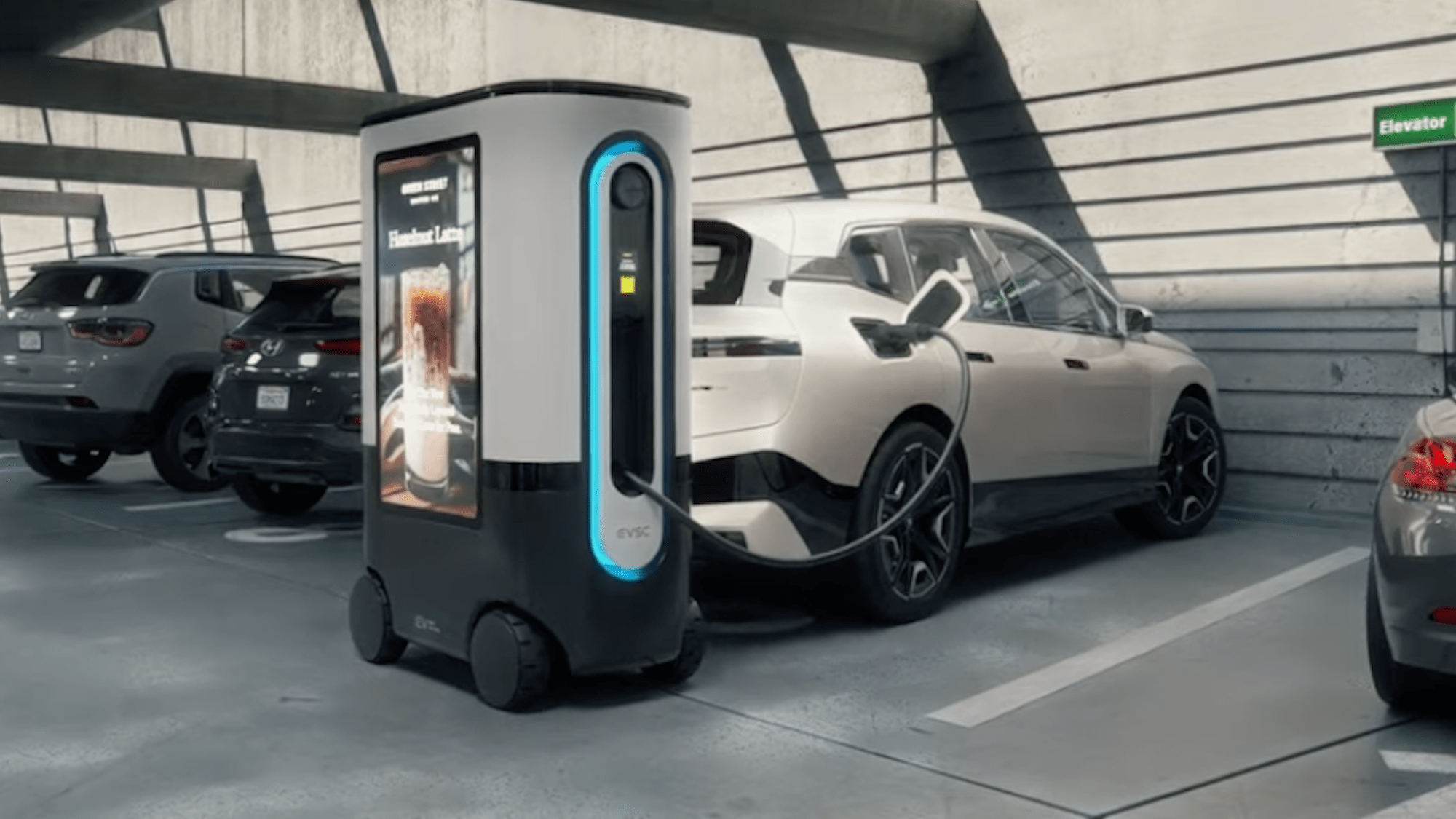

One of the world’s busiest airports will soon showcase an innovative, undeniably cute way to speed up travelers’ entrances and exits. First announced earlier this month, Dallas Fort Worth International Airport (DFW) is partnering with EV Safe Charge to demonstrate how the company’s mobile electric vehicle charging station, ZiGGY, could be deployed in public spaces to economically and conveniently power up consumers’ parked cars.
[Related: Electric cars are better for the environment, no matter the power source.]
Electric vehicles are an integral component of the societal shift towards clean, renewable energy. Unfortunately, battery shortages stemming from supply chain issues alongside a need for evermore charging stations is hampering a wider adoption of green transportation. ZiGGY obviously isn’t a catch-all fix, but it’s still a novel tool that both its makers and DFW hope to highlight over the summer as part of the airport’s series of EV charging solution demos.
“We know that electric vehicles will be a big part of the future of transportation,” Paul Puopolo, DFW’s Executive VP of Innovation, said in a statement, adding their air hub is “leaning into emerging technology now so that we are prepared to meet the needs of the airport community well into the future.”

ZiGGY itself resembles a large vending machine on wheels, which makes a certain amount of sense given it dispenses electric fuel on demand. Using geofencing technology, app-based controls, and on-board cameras, ZiGGY can be deployed directly to the location of your parked EV, where a user can then connect the charging bot to their ride. To court additional revenue streams, each ZiGGY also features large video screens capable of displaying advertisements. Don’t worry about getting stuck behind it if someone is using a ZiGGY, either—its dimensions and mobility ensures each station can park itself behind an EV without the need for additional space.
Speaking with Ars Technica on Tuesday, EV Safe Charge’s founder and CEO Caradoc Ehrenhalt explained that the idea is to deploy ZiGGY fleets to commercial hubs around the world, such as additional airports, hotels, and shopping centers. “What we’re hearing from people… is the common thread of the infrastructure being very challenging or not possible to put in or not cost effective or takes too much time. And so there really is the need for a mobile charging solution,” said Ehrenhalt.
[Related: Why you barely see electric vehicles at car dealerships.]
Of course, such an autonomous vehicle could find itself prone to defacement and vandalism, but Ehrenhalt apparently opts to look on the sunnier side of things. “Ziggy is fairly heavy because of the battery,” they cautioned to Ars Technica. “It has cameras all around and sensors, including GPS, and so there potentially could be [vandalism], but I’m always hoping for the best of humanity.”
